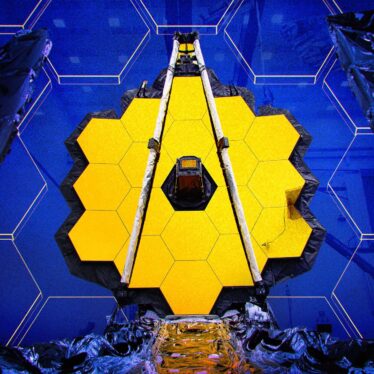
Science is often portrayed as a solitary affair, where discoveries are made by lone geniuses toiling in isolation. But Dr. Natasha Batalha, an astronomer at NASA’s Ames Research Center in California’s Silicon Valley, says solving problems with the people around her is one of the best parts of her job.
“Oh, man, working with people is all I do!” said Batalha, whose current research involves using NASA’s James Webb Space Telescope to study exoplanets, planets outside our solar system that orbit other stars.
Batalha’s work explores hot, Jupiter-like exoplanets; smaller, rocky exoplanets more similar to Earth; and brown dwarfs, mysterious objects smaller than a star but huge compared to the biggest planets. A single question has driven her since she was a kid: “Does life exist beyond Earth?”
It’s a lofty question, bigger than any one scientist. And that’s the point.
“I love being part of a larger community,” she said, “We’re working together to try to solve this question that people have been asking for centuries.”
However, the particular joy of belonging wasn’t always present in Batalha’s life.
When she was 10, her family moved from Brazil to the U.S., where she was met with culture shock, pressure to assimilate, and a language barrier. She thinks the latter is partly why she gravitated toward the universal language of math.
Eventually, her interests and strengths took shape around astronomy. When she chose to study physics in college, followed by a dual PhD in astronomy and astrobiology, her parents – who are also scientists – helped fill in for the community she was otherwise lacking.
“In high school, I watched female students drop out of my physics classes,” Batalha said. “The honors physics track in college was devoid of women and people of color. I didn’t feel I had a community in my college classes.”
Her mother, Natalie Batalha, is an astronomer who served as project scientist for NASA’s Kepler space telescope– the mission that taught us there are more planets than stars. Natasha’s father is a LatinX physicist. Both her parents had already faced similar challenges in their careers, and having their example to look at of people who had successfully overcome those barriers helped her push on.
“I identify as female and LatinX, which are both underrepresented groups in STEM,” she said, “but I also have a ton of privilege because my parents are in the field. That gave me a dual perspective on how powerful community is.”
I love being part of a larger community. We’re working together to try to solve this question that people have been asking for centuries.

Natasha Batalha
NASA Astronomer
Since then, empowering her own science community has been a focus of Batalha’s work.
She builds open-source tools, like computer programs for interpreting data, that are available to all. They help scientists use Webb’s exoplanet data to study what climates they may have, the behavior of clouds in their atmospheres, and the chemistry at work there.
“I saw how limiting closed toolsets could be for the community, when only an ‘inner circle’ had access to them,” Batalha said. “So, I wanted to create new tools that would put everyone on the same footing.”
Batalha herself recently used Webb to explore the skies of exoplanet WASP-39 b, a hot gas giant orbiting a star 700 light-years away. She is part of the team that found carbon dioxide and sulfur dioxide there, marking the first time either was detected in an exoplanet atmosphere. Now, she is turning to the difficult-to-discern characteristics of smaller, cooler planets.

Batalha says she’s exactly where her 6th-grade self imagined she would be. In elementary school, she read a biography of NASA astronaut Sally Ride and was hooked by an idea it contained: that in 20 years the kids reading those words could be the ones pioneering the search for life on Mars.
Today’s youth belong to the Artemis Generation, who will explore farther than people have ever gone before. The Artemis program will send the first woman and first person of color to the lunar surface. Missions over time will build a presence at the Moon to unlock a new era of science and prepare for human missions to Mars and beyond. Along the way, scientists will continue to search for signs of life beyond Earth, an endeavor building on the work of many generations and relying on those in the future to carry on the search.
“That’s something really rewarding about my work at NASA,” she said. “These questions have been asked throughout human history and, by joining the effort to answer them, you’re taking the baton for a while, before passing it on to someone else.”
https://www.nasa.gov/general/nasa-astronomer-sees-power-in-community-works-to-build-more/




